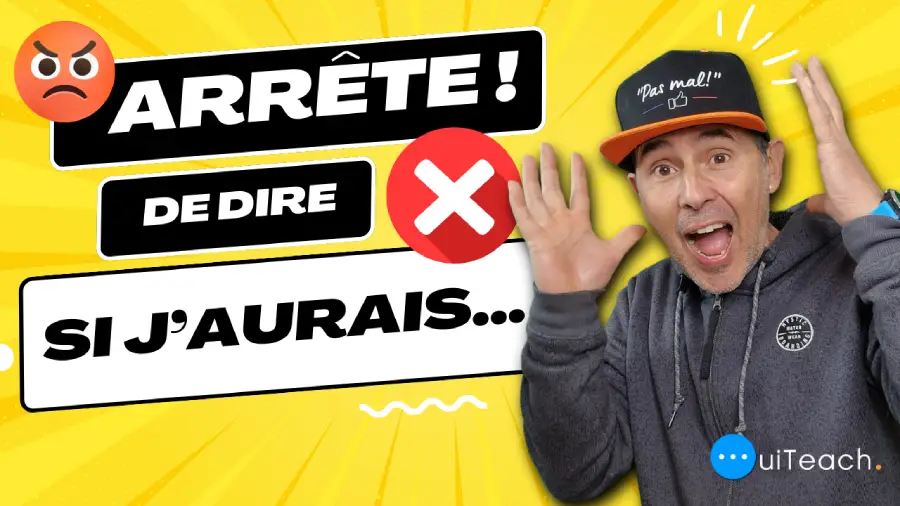In this YoutTube video to learn French. I talk about the affirmative sentence and from there I show you how to build a negative sentence using the simple negation “NE” and “PAS”. In the first part of the video, you will see the lesson where I explain the rule. It’s a basic French grammar lesson but it’s very important to understand it well, to be able to express yourself well in French. In the second part I give you several examples of negative sentences in French, starting from the same sentence but in the affirmative form. Each time I give you time to repeat after me to improve your French pronunciation. In the third part, I propose a Quiz where I give you affirmative sentences and each time, you must find the corresponding negative sentence. Finally, at the end of the video I give you a little exercise where you have to answer in the comments of the video.
My name is Alain, I am a teacher and I am a native French speaker. I hope you will enjoy this new French lesson and that you will quickly make progress! Good luck 🙂
OuiTeach is the perfect youtube channel to learn french if you are a beginner.
❤️ Please, subscribe to our YouTube channel by activating the bell. This way, every Friday you will receive a notification when the next video lesson in French is available.
With OuiTeach., French becomes easy! ?
Dans cette vidéo YoutTube pour apprendre le français. Je vous parle de la phrase affirmative et à partir de là je vous montre comment construire une phrase négative en utilisant la négation simple “NE” et “PAS”. Dans une première partie de la vidéo, vous pourrez voir la leçon où je vous explique la règle. C’est une leçon de grammaire française de base mais qui est très important de bien la comprendre, pour pouvoir bien vous exprimer en français. Dans une deuxième partie je vous donne plusieurs exemples de phrase négatives en français, en partant de la même phrase mais à la forme affirmative. Je vous laisse à chaque fois du temps pour répéter après moi pour améliorer votre prononciation du français. Dans une troisième partie, je vous propose un Quiz où je vous donne des phrases affirmatives et à chaque fois, vous devez trouver la phrase négative correspondante. Enfin, à la fin de la vidéo je vous donne un petit exercice où vous devrez répondre dans les commentaires de la vidéo.
Je m’appelle Alain, je suis enseignant et je suis de langue maternelle française. J’espère que vous apprécierez cette leçon et que vous ferez de rapides progrès en français. Ouiteach est la parfaite chaîne Youtube pour apprendre le français si vous avez un niveau débutant.
❤️ Si ce n’est pas déjà fait, n’hésitez pas à vous abonner à notre chaîne en activant la cloche ainsi chaque vendredi, vous recevrez une notification pour vous avertir que la leçon vidéo suivante en français est disponible.
Dans cette nouvelle leçon de français pour les débutants, vous allez apprendre le présent des verbes voir et donner.
Je vous présente la conjugaison de ces verbes et leurs terminaisons selon le pronom personnel employé.
J’emploie également ces verbes dans des phrases afin que vous appreniez également du vocabulaire nouveau.
Ecoutez et répétez plusieurs fois ces phrases pour améliorer votre prononciation du français.
A la fin de vidéo, il y a aura un petit quiz qui vous permettra de tester vos connaissances sur cette nouvelle leçon de français.
Je m’appelle Alain, je suis enseignant et je suis de langue maternelle française. J’espère que vous apprécierez cette leçon et que vous ferez de rapides progrès en français. Ouiteach est la parfaite chaîne YouTube pour apprendre le français si vous avez un niveau débutant.
❤️ Si ce n’est pas déjà fait, n’hésitez pas à vous abonner à notre chaîne en activant la cloche ainsi chaque vendredi, vous recevrez une notification pour vous avertir que la leçon vidéo suivante en français est disponible.
Avec OuiTeach., le français devient facile ! ?



